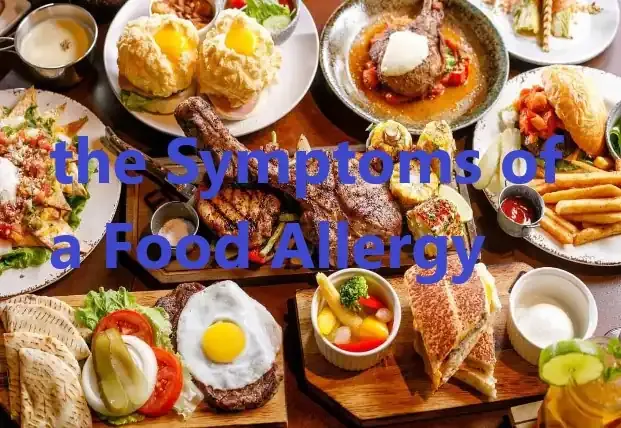If you experience symptoms like sneezing, wheezing, hives, or swelling after eating certain foods, you may have a food allergy. While some food allergies can be mild, others can be severe and even life-threatening. It's important to know the symptoms of a food allergy and when to see a doctor.
The Different Symptoms of a Food Allergy.
If you have
a food allergy, you may experience sneezing, wheezing, and asthma. Sneezing and
wheezing are caused by the histamine in your body. Asthma is a condition in
which your airways narrow and make it difficult to breathe. If you have asthma,
you may also have difficulty swallowing or speaking.
Hives, eczema, and itching.
Hives are
raised, red bumps on your skin that can be itchy or painful. Eczema is a
condition that causes your skin to become dry, cracked, and inflamed. Itching
is often a symptom of both hives and eczema.
Swelling of the lips, tongue, and throat.
If you have
a food allergy, you may experience swelling of the lips, tongue, and throat.
This can make it difficult to breathe or swallow. In severe cases, it can lead
to anaphylaxis (see Section 1.5).
Nausea, vomiting, and diarrhea.
Nausea,
vomiting, and diarrhea are common symptoms of food allergies. You may also experience
cramping, bloating, or gas.
Anaphylaxis.
Anaphylaxis
is a severe allergic reaction that can be life-threatening. Symptoms include
swelling of the throat, difficulty breathing, dizziness, and loss of
consciousness. If you have any of these symptoms, you should call 911 or go to
the nearest emergency room immediately.
When to See a Doctor?
If you have
any of the symptoms of a food allergy, it's important to see a doctor as soon
as possible. These symptoms can range from mild to severe, and in some cases
they can be life-threatening.
If you think you might have a food allergy.
If you think
you might have a food allergy, it's also important to see a doctor. They can
help you figure out if you actually have an allergy, and if so, what steps you
need to take to avoid reactions.
If you have a family history of food allergies.
If you have
a family history of food allergies, it's a good idea to see a doctor even if
you don't have any symptoms yourself. This is because you may be at higher risk
for developing an allergy, and it's important to be aware of that so that you
can take steps to avoid reactions.
How to Avoid a Reaction?
When you
have a food allergy, it is important to always read food labels carefully. Many
foods contain hidden allergens that can trigger a reaction. Be sure to check
the ingredients list for any potential allergens, and avoid foods that contain
them.
Avoid foods that you're allergic to.
The best way
to avoid a reaction is to simply avoid the foods that you are allergic to. If
you know you are allergic to a certain food, make sure to avoid it altogether.
This may mean reading labels carefully, as mentioned above, but it also means
being aware of the foods you are eating and where they come from. If you are
unsure about a food, it is always best to err on the side of caution and avoid
it altogether.
Carry an epinephrine auto-injector with you.
If you have
a severe food allergy, it is important to always carry an epinephrine
auto-injector with you in case of an emergency. Epinephrine is the only
medication that can reverse the symptoms of anaphylaxis, so it is essential to
have one with you at all times in case of accidental exposure to a trigger
food.
Conclusion
If you think
you might have a food allergy, it's important to see a doctor. They can help
you figure out what's causing your symptoms and how to avoid a reaction. In the
meantime, be sure to read food labels carefully and avoid foods that you're
allergic to. And if you have a severe reaction, make sure to carry an
epinephrine auto-injector with you.
food allergy,food allergies,food allergy symptoms,food allergy testing,allergy,food allergy (disease or medical condition),food allergy vs food intolerance,food intolerance,food allergy rash,allergy food test,food allergy treatment,food,allergy test,peanut allergy,allergy blood test,food allergy blood test,food allergy anxiety,allergy to foods,food allergy skin test,food allergy reaction,food allergy in babies,children food allergy


